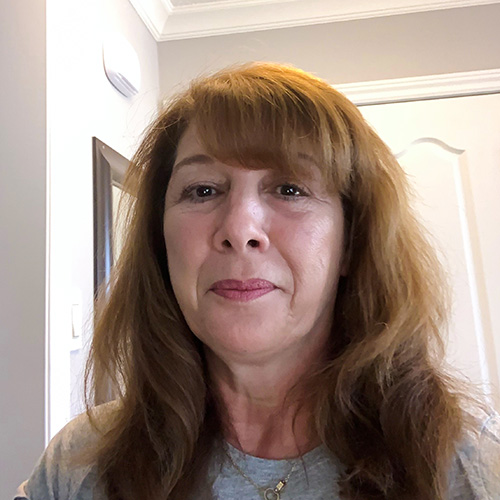Early detection leads to positive outcomes for breast cancer patients like Felicia
Early detection leads to positive outcomes for breast cancer patients like Felicia
 Family physicians play a crucial role in ensuring their patients are screened regularly for breast cancer. A timely referral can lead to early detection and better health outcomes.
Family physicians play a crucial role in ensuring their patients are screened regularly for breast cancer. A timely referral can lead to early detection and better health outcomes.
The Ontario Breast Screening Program (OBSP) recommends women between 50 and 74 years of age be screened every two years for breast cancer. Felicia Prokopetz was 56 when her new family physician, Dr. Small, flagged that she had not yet had her first mammogram. Given her age, it was time to make a referral.
A mammogram (breast x-ray) remains the best screening test to help women and their doctors detect signs of early breast cancer – whether you’re experiencing symptoms or not. Common symptoms include a new lump or swelling in the breast or armpit, skin irritation or dimpling, nipple pain, discharge, or the nipple turning inward. At the time, Felicia had none of these symptoms.
Felicia recalls the process was seamless. The referral was sent to Mackenzie Richmond Hill Hospital where all the necessary arrangements were made. Unfortunately, her mammogram revealed a lump in her right breast.
Fortunately, Mackenzie Health’s Breast Health Centre treats a wide range of breast conditions using an integrated model of care that includes ultrasound, mammography and surgery. Felicia underwent a series of tests including a Radioactive Seed Localization (RSL) procedure. The seed contains a small amount of radiation which helps the surgeon, using a special tool, find the seed and the surrounding abnormal tissue in order to take out the mass. RSL is less invasive and more comfortable compared to wire localization, a procedure where a guide wire is placed in the breast and threaded through the tissue to the location of the breast mass. On the administration side, RSL also makes the scheduling process easier, reducing the wait time for patients and allowing surgeons to operate on more patients daily.
“Dr. Jackson performed my breast surgery to remove the cancerous tumour on Oct. 8, 2021,” says Felicia. “I had a lump in my right breast that I would never have detected on my own. If it wasn’t for Dr. Small sending the referral to Mackenzie Health, and Dr. Jackson and his team performing the surgery, I know that if I waited my cancer could have been worse than just stage 1.”
Dr. Steven Jackson, Mackenzie Health’s Chief of Staff is a general surgeon by training, specializing in surgical oncology, and is one of many talented surgeons at Mackenzie Health providing the ultimate in care, close to home.
In addition to surgery, Felicia also had 16 rounds of radiation at Southlake Regional Health Centre. Today, she continues to be seen by Dr. Francis Patafio in Mackenzie Health’s Medical Oncology unit for her follow-up appointments. Felicia will continue to take Letrozole, an oral pill, once a day for the next five years as part of her ongoing treatment.
Mackenzie Health’s Breast Health Centre provides timely, compassionate and thorough care for those who have had an abnormal breast test result. The goal is to provide the ultimate in care for patients from the initial referral from a family physician to assessment, diagnosis and treatment.
“By sharing my story, I want women to know that early detection makes a difference and having the conversation with your family physician about routine mammogram appointments are necessary,” says Felicia. “It’s not enough to just do self-exams or have annual health check-ups at our doctor’s office. We need our family doctors to be part of the process. It can mean the difference between life and death.”
OHIP covers standard of care testing and treatments. Women between the ages of 50 and 74 should speak with their family physician about their breast health and should get tested every two years. A family physician, a doctor at a walk-in clinic or nurse practitioner can make a referral for breast screening.
“To this day I am grateful that my new family doctor referred me to Mackenzie Health for my mammogram. Even though my test result was abnormal, and more tests were needed to confirm a diagnosis, Dr. Small reassured me that I would receive the best possible care,” says Felicia.